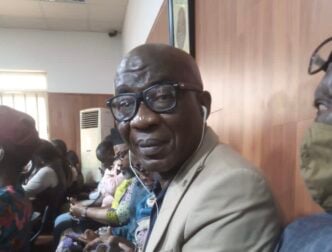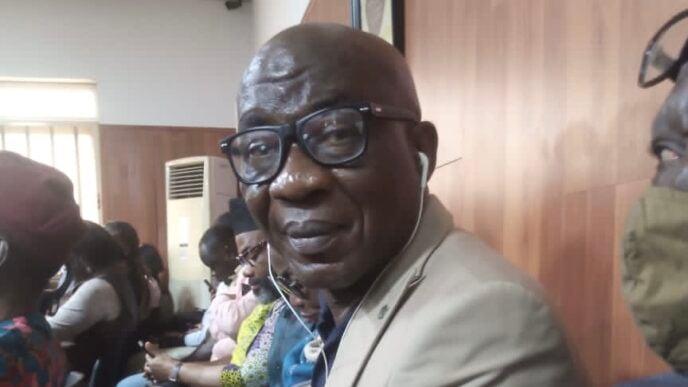A bill seeking to establish Sickle Cell Disorder Research and Therapy Centres across the six geopolitical zones has scaled second reading in the senate.
The bill, sponsored by Sunday Marshall Katung, senator representing Kaduna south, aims to expand access to specialised care, improve data collection, and support education and assistance for patients and families affected by the disease.
Katung said the proposed legislation provides for the establishment and due administration of the centres in each geopolitical zone and the Federal Capital Territory.
He explained that the Sickle Cell Disorder Research and Therapy Centres (Establishment) Bill, 2025 (SB. 893), consists of 27 clauses addressing the creation of the centres, management board, staffing, financial provisions, and general administration.
“The objectives of the bill are to provide a legal and institutional framework for the establishment of six sickle cell disorder therapy centres in Nigeria, one in each geopolitical zone,” he said.
Advertisement
“It also seeks to provide facilities for diagnosis, curative and rehabilitative services for patients, as well as to improve research and education on sickle cell disorder.”
Katung described sickle cell as the most common inherited disorder in Africa, with over 650 children dying daily from complications.
He claimed that Nigeria remains the global epicentre of the disease, with most affected children dying before the age of five.
Advertisement
“Distinguished colleagues, it is worthy of note that these mismatched statistics are in sharp contrast to outcomes in high-income countries, where more than 90 percent of sickle cell patients reach adulthood,” he added.
The lawmaker observed that despite major scientific advancements globally, Nigeria still records high mortality rates due to poor implementation of diagnostic and treatment measures.
Osita Ngwu, senator representing Enugu west, said the bill was long overdue and “completely necessary” given its genetic nature.
“It comes from a genetic transmission, due to ignorance of the parents. This bill is timely and will go a long way in providing therapy and saving lives,” he said.
Advertisement
Tahir Monguno, senator representing Borno north, urged relevant agencies to intensify public sensitisation on genotype compatibility before marriage.
In his contribution, Abdulfatah Buhari, senator representing Oyo north, said the bill should prioritise enlightenment and rural outreach, adding that “most people don’t even know who to marry in terms of genotype compatibility”.
Abdul Ningi, senator representing Bauchi central, described the bill as “a landmark legislation”, noting that sickle cell disorder primarily affects people of African descent.
“It is essentially a black man’s disease. There are no white people who have sickle cell, scientifically speaking. It is important we get the cure in place, and I think we should pursue this with vigour,” he said.
Advertisement
Idiat Adebule, senator representing Lagos west, said the bill addresses a “significant public health issue” that contributes to child mortality.
Diket Plang, senator representing Plateau central, described the disease as “very unfortunate” and called for more centres to increase access to treatment.
Advertisement
Natasha Akpoti-Uduaghan, senator representing Kogi central, advised that the centres be attached to university teaching hospitals to enhance research and reduce cost.
Also speaking, Simon Lalong, senator representing Plateau south, said the focus should be on cure rather than management, while Binos Yaroe, senator representing Adamawa south, urged speedy passage of the bill.
Advertisement
Victor Umeh, senator representing Anambra central, noted the need for enlightenment on premarital genotype testing, describing the disease as “a heavy financial burden for parents”.
Advertisement









